LEMON GRASS
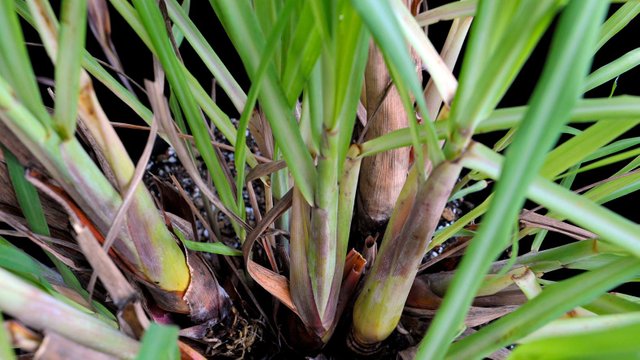
Botanical name – Cymbopogon flexuosus
It belongs to the family of Gramineae
CULTIVATION
Climate and Soil
The plants are hardy and grow under a variety of conditions. The most ideal conditions are a warm and humid climate with plenty of sunshine and rainfall of 250-280 cm per annum, uniformly distributed. Regarding the soil, it can be grown from poor soils, in the hill slopes. Soil pH ranging from 4.5 to 7.5 is ideal. As it has good soil binding nature, they can be grown as vegetative cover over naked eroded slopes.
Varieties
The Medicinal and Aromatic Plants Research Station, Odakkali (Kerala) and CIMAP, Lucknow has developed improved strains viz., OD-19 and SD-68 respectively as a result of breeding and selection. The important features of these varieties are given below. These two improved varieties are now recommended for wide cultivation. Recently the RRL, Jammu has developed a hybrid strain CKP-25 by crossing C.khasianus and C.pendulus which is capable of yielding 50% and 140% more oil yield than RRL-16 and OD-19 respectively.
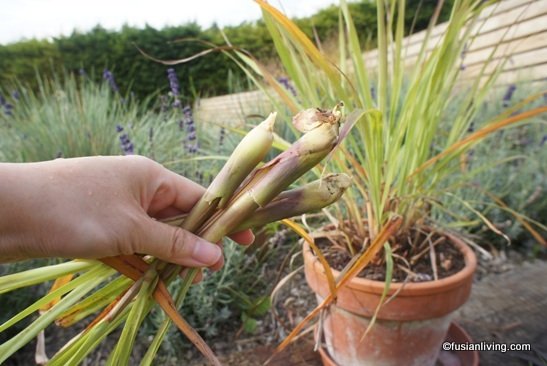
Nursery
The soil should be well pulverized for forming the seedbed and it should be a raised bed one. Leaf mould and farmyard manure is also added to the soil while forming the bed. 15-20 kg of seeds are required for raising seedlings for one hectare. Seeds are sown in lines drawn at 10 cm interval in the beds and covered with cut grass materials. When the seedlings are about 2 months old or about 12 to 15 cm high, they are ready for transplanting.
Field preparation
The land is cleared of the underground vegetation and pits of 5 cm cube are made at a spacing of 15 x 10 cm. Splits for old clumps can also be used for propagation.
Harvesting
Lemon grass comes to harvest 90 days after planting and subsequently it is harvested at 50-55 days interval. The grass is cut 10 cm above the ground level and 5-6 cuttings can be taken in a year subject to the climatic conditions. Depending upon the soil and climatic condition, the crop can be retained in the field for 5 to 6 years. Depending upon the planting period, one or two cuttings are taken in the first year and from second year onwards, 3-4 cuttings are available. Harvesting consists of fresh leaves and also the dry or semi-dried leaves at intervals of 60 days. The crop should not be allowed to flower profusely as it reduces the overall yield.
Processing facilities
On an average 25 kg of oil can be obtained from first year per hectare plantation and about 80 to 100 kg of oil per year from first year 2nd to 6th year if well maintained
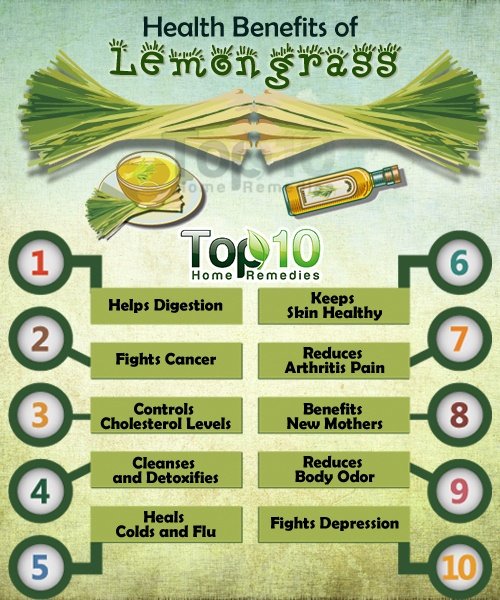
HEALTH BENEFITS OF LEMON GRASS
Lemongrass contains antioxidants, flavonoids and phenolic compounds such as luteolin, glycosides, quercetin, kaempferol, elemicin, catechol, chlorogenic acid, and caffeic acid, all of which help in providing an impressive range of medicinal aids. The main component of lemongrass is lemonal or citral, which has anti-fungal and anti-microbial qualities, while also providing a distinct lemony smell. Some of the most well-known health benefits of lemon grass include:
AIDS DIGESTION
It has antiseptic compounds that effectively kill bad bacteria and parasites in the digestive tract and repopulate the good bacteria in the colon.
This in turn helps treat digestive health problems like indigestion, constipation, heartburn, diarrhea, bloating, flatulence, stomach spasms, vomiting and cramps. Plus, lemongrass has antimicrobial properties that help relieve gastroenteritis.
For a healthy digestive tract, drink lemongrass tea on regular basis. Lemongrass tea, however, is not recommended for small children
Detoxifies
Regular consumption of lemon grass tea helps cleanse and detoxify the body. The diuretic nature of lemongrass helps remove toxins, uric acid and bad cholesterol from the body by increasing the frequency and quantity of urination. Urination also helps clean out the kidneys.
Plus, the cleansing properties of this herbal tea help purify the liver, kidneys, bladder and pancreas. It also plays a key role in increasing blood circulation, which is important for overall health.
RECOMMENDATION
Drink lemongrass tea on a regular basis to help your body get rid of harmful elements.
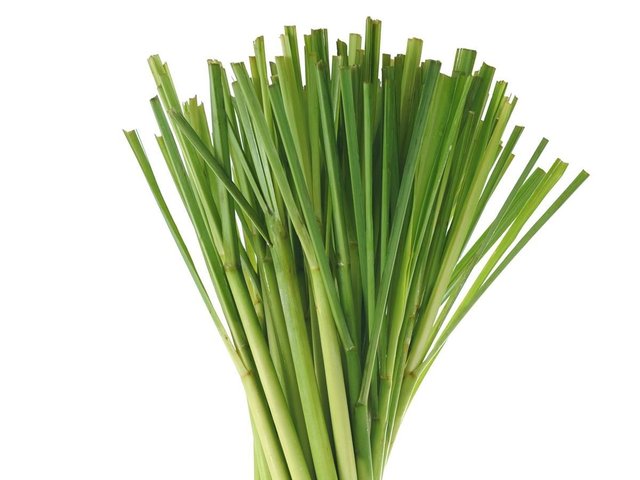
Fights Cancer
Lemon grass tea can help fight cancer. A component called citral found in lemon grass causes apoptosis in cancer cells without damaging healthy cells. Simply put, it causes the cancer cells to commit suicide.
In fact, to help the healing process, cancer patients in Israel are encouraged to take fresh lemon grass tea while undergoing radiation or chemotherapy treatments.
Plus, there are several antioxidant properties in lemongrass that help lower your risk of cancer by fighting free radicals.
*Treats Insomnia
Lemon grass aids in calming the muscles and nerves which helps in inducing deep sleep. Research has shown that lemon grass tea has sedative and hypnotic properties which help in increasing the duration of sleep.
Respiratory Disorders
Lemon grass is widely used in Ayurvedic medicine for its healing effects in treating cough and cold. Along with other beneficial components, the vitamin C content present in it helps in providing relief from *nasal blockages, flu and other respiratory disorders such as bronchial asthma.
Cures Fever
Lemon grass is a febrifuge and is also known as the ‘fever grass’owing to its beneficial effects in lowering fever. The anti-pyretic and diaphoretic effect of lemongrass is extensively used in Ayurvedic medicine for curing fevers by inducing sweating.
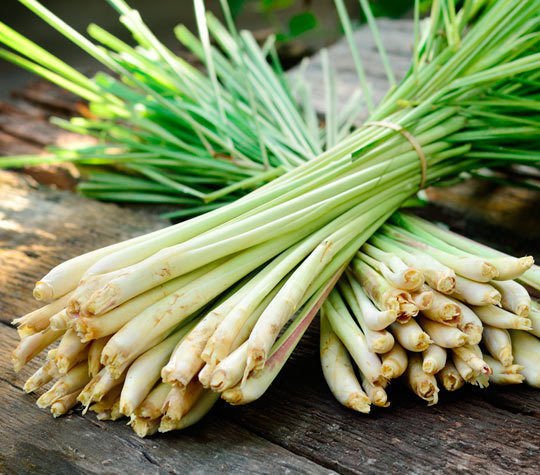
Treats Infections
Lemongrass works as an antiseptic and is effective in treating infections such as ringworm, sores, Athlete’s Foot, scabies, and urinary tract infections because of its antimicrobial and anti-fungal properties. Studies have shown that lemongrass exerts healing effects on dermatological infections, such as yeast infections, by inhibiting the growth of pathogens. Another study provides supporting evidence that demonstrated the efficacy of lemongrass over thyme, patchouli, and cedarwood oil in the treatment of various diseases such as oral or vaginal candidiasis.
Reduces Aches
Lemongrass alleviates the pain and discomfort caused by headaches and migraines due to its analgesic properties. The phytonutrients present in it improve the blood circulation and help in relieving spasms, muscle cramps, sprains, and backaches. It is valuable in treating sports wounds, including dislocations, internal injuries, and bruises.
Nervous System
Lemongrass is nervine and has been proven to be a tonic for the nervous system. It stimulates the mind and helps in combating convulsions, nervousness, vertigo, and various neuronal disorders such as Alzheimer’s and Parkinson’s disease. It is used in therapeutic baths, which assist in calming the nerves and alleviates the symptoms of anxiety and fatigue caused by stress.
Type-2 Diabetes
Lemongrass has been proven beneficial in treating Type-2 diabetes. Studies have shown that the citral present in it help to maintain optimum levels of insulin and improve the tolerance of glucose in the body.
Prevents Rheumatism
Lemongrass is effective in relieving the pain and discomfort caused by rheumatism. It can be applied topically on both lumbago and sprains and helps in relieving neuralgia.
Boosts Immunity
Lemongrass helps in restoring the vital systems which are operational in the body, including digestion, respiration, excretion and nervous system. This assists in the better absorption of nutrient and strengthens the immune defense mechanism of the body. Lemongrass extracts have a beneficial effect on the inflammatory actions of cytokines, which are the signaling molecules through which the cells communicate and respond to the body. Studies have shown that lemongrass exerts anti-inflammatory action and its constituent, citral, may be the cause of its inhibitory effect on cytokine production.
Skin Care
Lemongrass has been treasured as a skin tonic and makes an effective cleanser for oily or acne-prone skin, due to its astringent and antiseptic qualities. It helps in strengthening the skin tissues and toning up the pores while also sterilizing them. Care should be taken while using lemongrass products, as the undiluted application might lead to dermal irritation in some cases.
Lemon grass Nutrition Facts
Lemon grass is an aromatic storehouse of essential nutrients providing an array of health benefits. It is a source of essential vitamins such as vitamin A, vitamin B1 (thiamine), vitamin B2 (riboflavin), vitamin B3 (niacin), vitamin B5 (pantothenic acid), vitamin B6 (pyridoxine), folate and vitamin C. It also provides essential minerals such as potassium, calcium, magnesium, phosphorous, manganese, copper, zinc and iron, which are required for the healthy functioning of the human body. It offers no harmful cholesterol or fats.
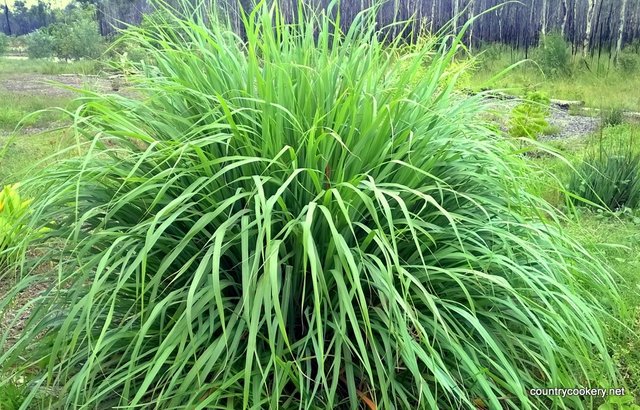
NOTE
Although considered safe, the topical use of lemongrass oil or the ingestion of herbal tea made of lemongrass can result in allergic reactions in some people. In the event of any allergic symptoms, it is always advisable to discontinue the use of lemongrass oil and seek immediate medical attention.
concentrated lemongrass oil should not be applied directly on the body as it may result in harmful reactions. It is always advisable to keep pure lemongrass oil out of the reach of children.
*It is strongly recommended to consult a health professional before considering lemongrass oil for therapeutic usage; especially during pregnancy when trying to conceive, breastfeeding, and during the course of any ongoing medical treatments.
Thanks for this indepth knowledge on lemon grass. I used to be a hands-on gardener in nairobi (between 1996 to 2009) and planted alot of lemon grass in homesteads. I now live in the countryside where I have a fewcollections of herbal plants.
many people don't know about this wonderful plant that's why i had to put this up...thanks for reading through
True